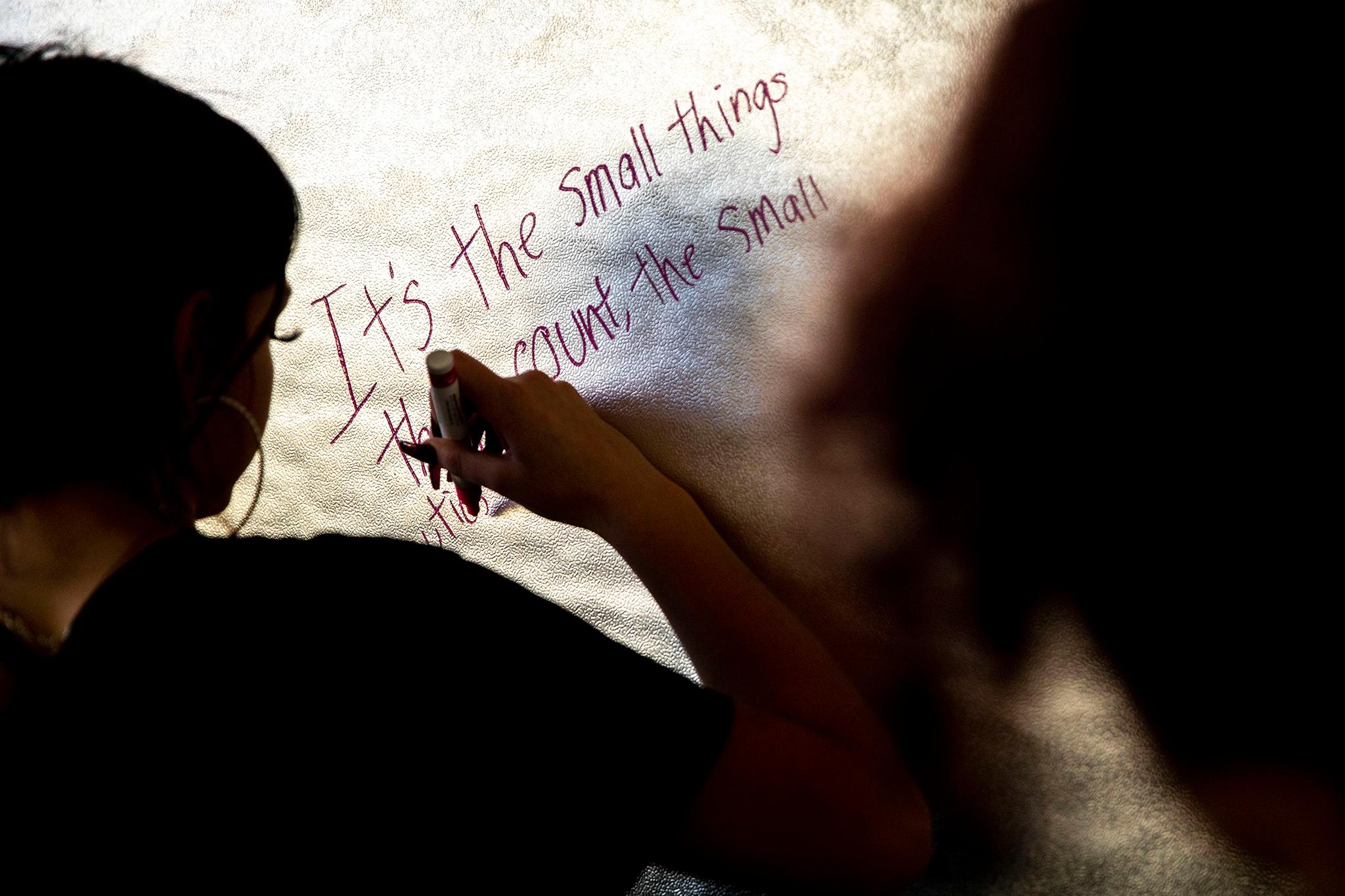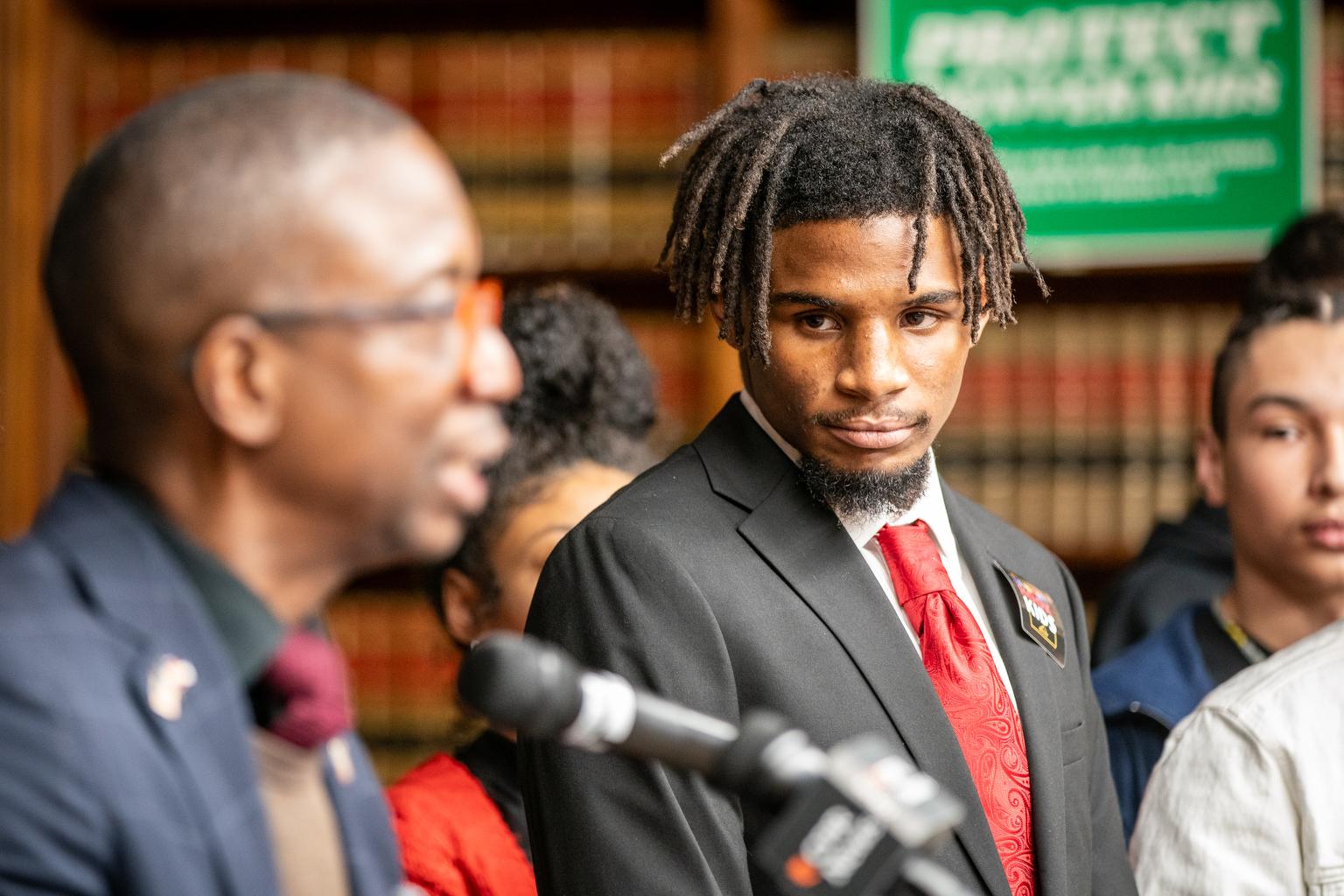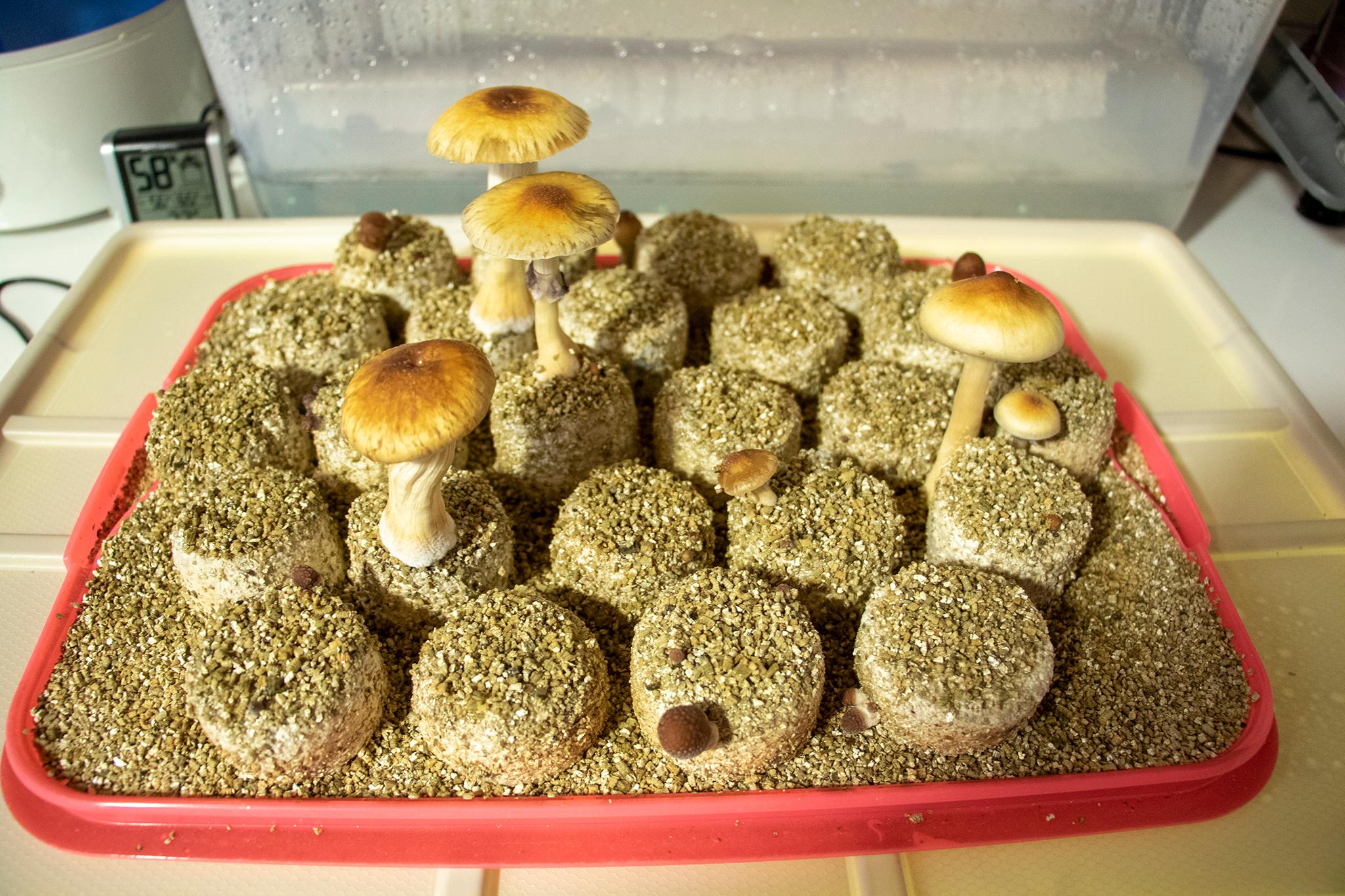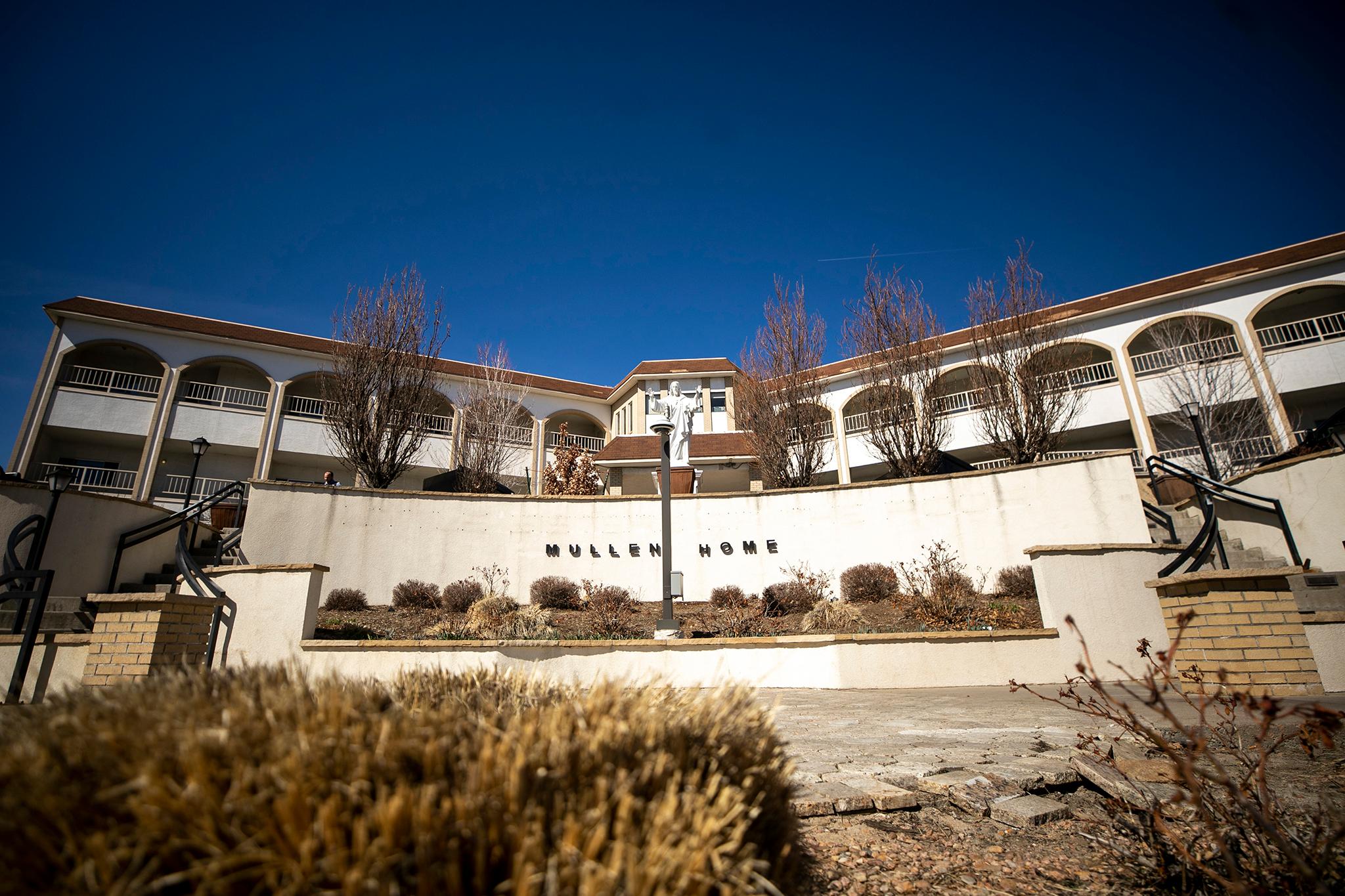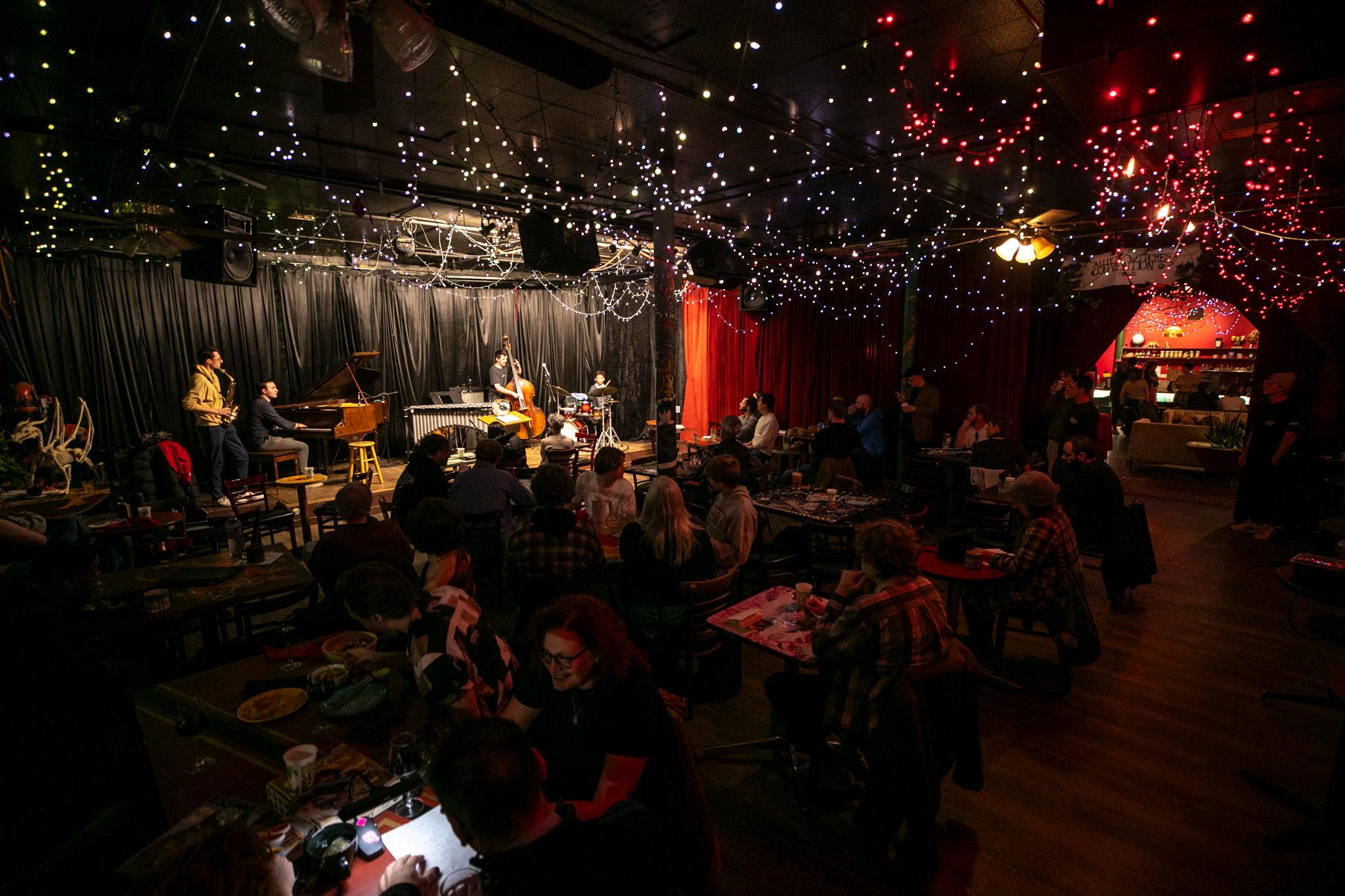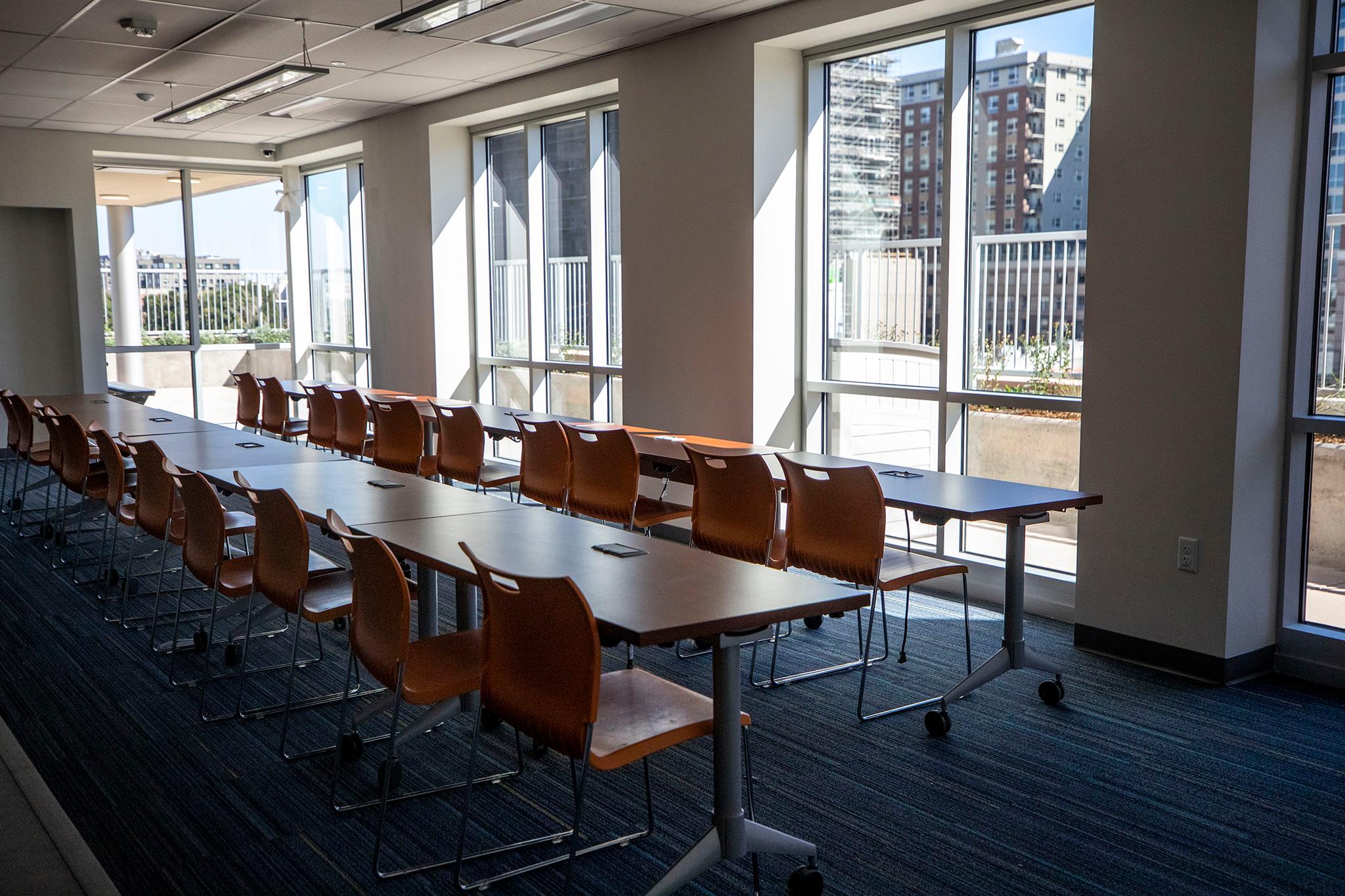"It's the small things that count. The small beauties of the world that keep you going, keep you thriving. Look for the small things and you, too, will be beautiful."
Alice Pearson wrote these words on foam board, a piece of insulation on display in the Lighthouse Writers Workshop's temporary headquarters. It would eventually be carried across a parking lot, embedded in a construction project and, possibly, never seen again.
Lighthouse turned 25 years old in 2022, and the nonprofit is close to completing a major upgrade for their writing workshops and youth programs. Their new permanent headquarters, a brand new $8 million building on the edge of Denver's Clayton neighborhood, is set to open next year.
And as the work began, Donneve Rae, a member, floated an idea in the community. Wouldn't it be fun if they penned some of their own words onto the building's bones?
"I just thought that was absolutely delightful," Jefferson told us. "We are all just really thrilled by the idea of physically building a building out of words, even if it's just in that small way. The words are literally part of the building materials."
Pearson, a member of Lighthouse's Young Author's Collective, said it didn't matter the short sentiment would be sealed away behind drywall. To her, it was an opportunity to bless a space she's come to rely on, a small gesture for something that's become a big part of her life.
"It's like setting intentions," she said, "you know what I mean?"
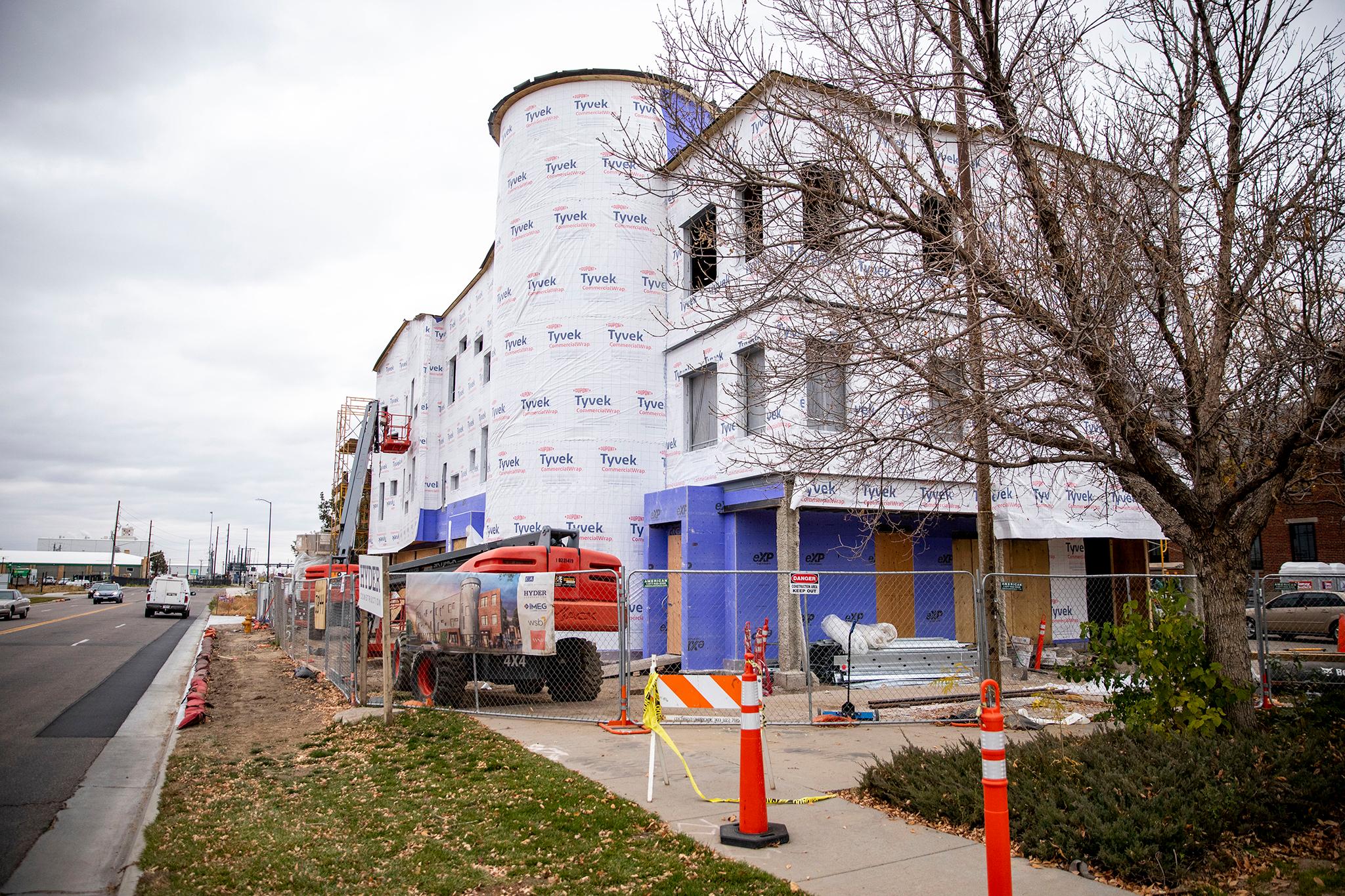
"Even the little witch girl needs friends."
This was the passage Abby, who asked we don't use her last name, chose to write. For her, it was a reflection of what she's gotten from the Young Author's Collective, a musing on acceptance and friends found by chance.
"I didn't seek out these people, and then we all found each other through writing" she said as she sat with Pearson, Bruna Patton and Zoe Roberts during their weekly workshop. "We all get to enjoy these parts of ourselves and find people who will accept your, like, little witchiness."
The kids described themselves like the "Breakfast Club," not necessarily compatible in the real world but absolutely cohesive in this context. They're each between 13 and 15 and figuring themselves out, mostly on the page, in this "judgement-free zone."
The words Patton chose - "sometimes you need comfort, even if you get it from the worst places" - was an example of this self exploration. The passage wasn't so much about projecting an intention as it was an exercise in homing in on the kind of ominous prose she's been exploring in workshops.
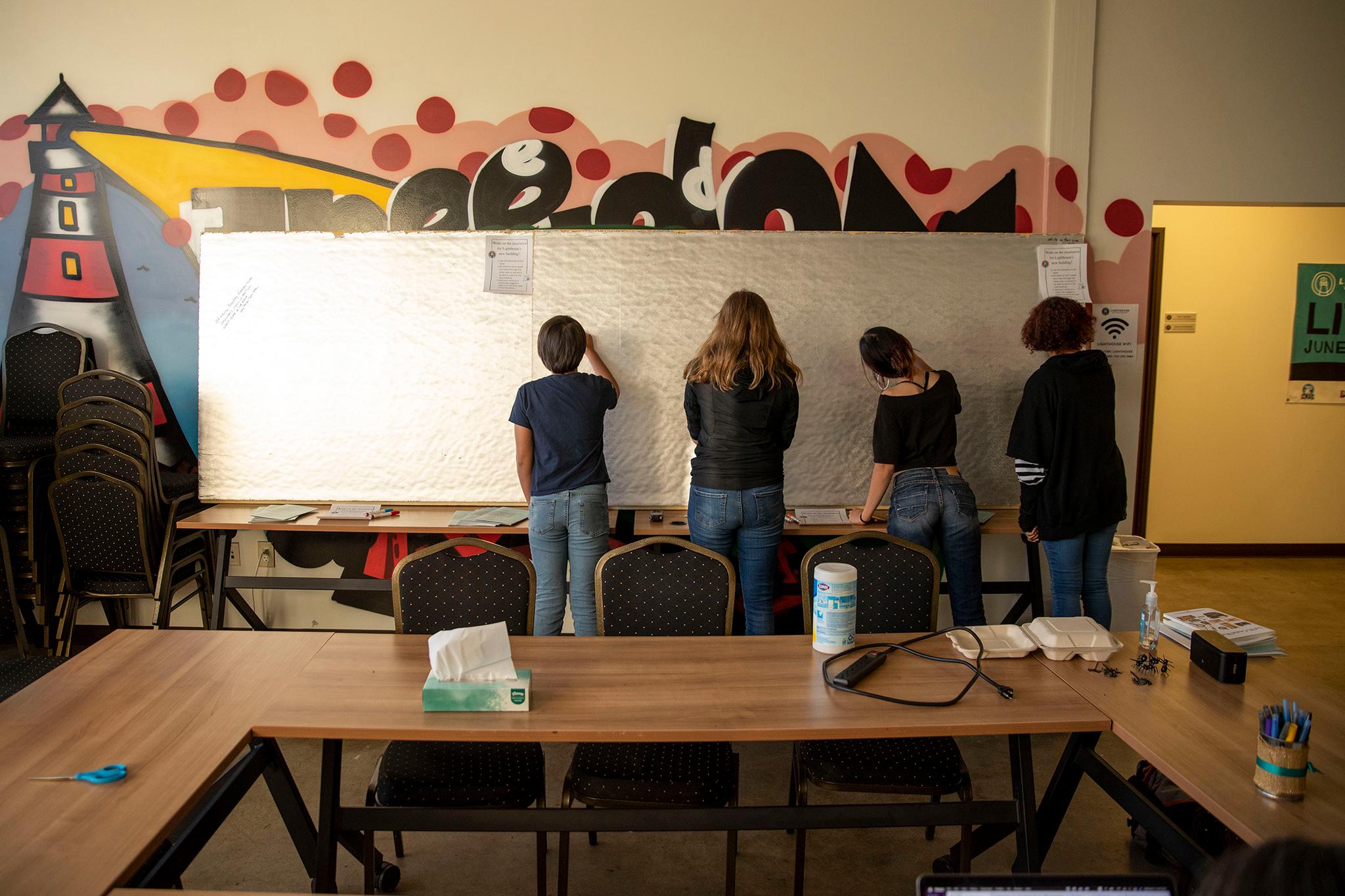
This kind of safe place was a big goal in Lighthouse's expansion. Jefferson said the new building will offer, for the first time, a dedicated room for young people to come and write. Their goal is an open invitation to any kid in the neighborhood, not the few selected each year for the intensive Young Author's Collective program.
"We wanted to be in a place where kids can walk in after school and get tutoring help and, you know, 'I need somewhere to write my creative writing homework,'" she said. "We wanted to be somewhere that was really accessible to local schools, an area that really doesn't have a ton of arts access that we can help build up. That was really important to us."
"I think the meaning of life is to make a difference in the world in a way no one else can."
Those were the words Zoe Roberts penned on the foam panel, a mantra she tries to keep in her mind when things outside herself seem hectic or depressing.
It also embodies Lighthouse's broader goals, beyond just their youth programs.
During the pandemic, the nonprofit's footprint grew far beyond the metro. As they opened classes over zoom, they accumulated participants from all 50 states and a handful of other continents. They offered seminars for medical workers who needed a venue to blow off steam as their hospitals filled with COVID cases, an offshoot of older programs that used writing as therapy for people dealing with hardship.
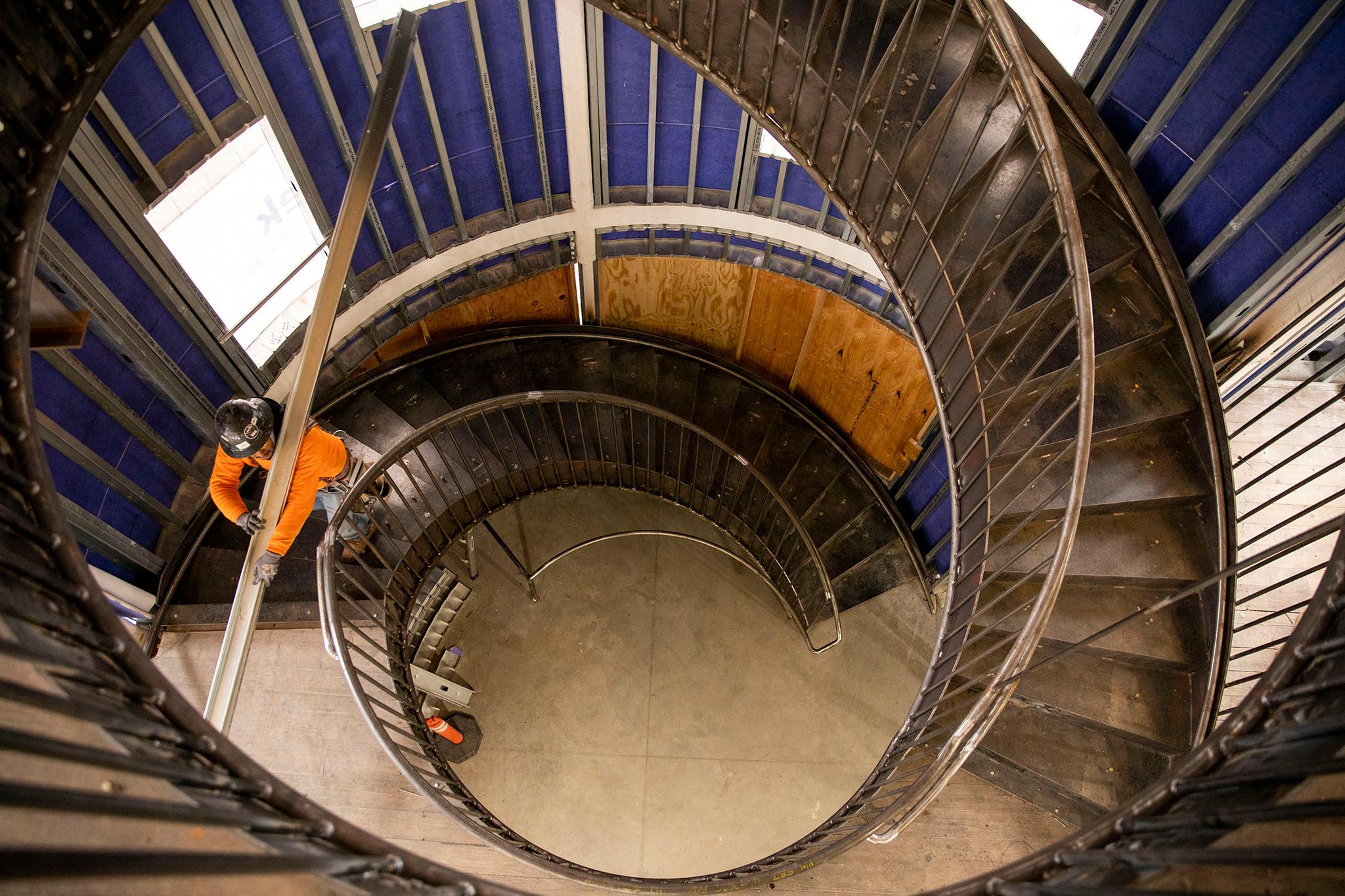
Alexa Culshaw, the nonprofit's spokesperson, said this kind of community work is what sets Lighthouse apart from other organizations like them. Writing and words, she added, are perfect vehicles to create spaces where individual people and communities can grow stronger.
"We're guided by the belief that writing is a transformative act, and words are our most meaningful way of connecting with one another," she told us. "We see a real power and potential in creative writing, expressing your story, reading someone else's story, understanding new perspectives. It's just a powerful tool."
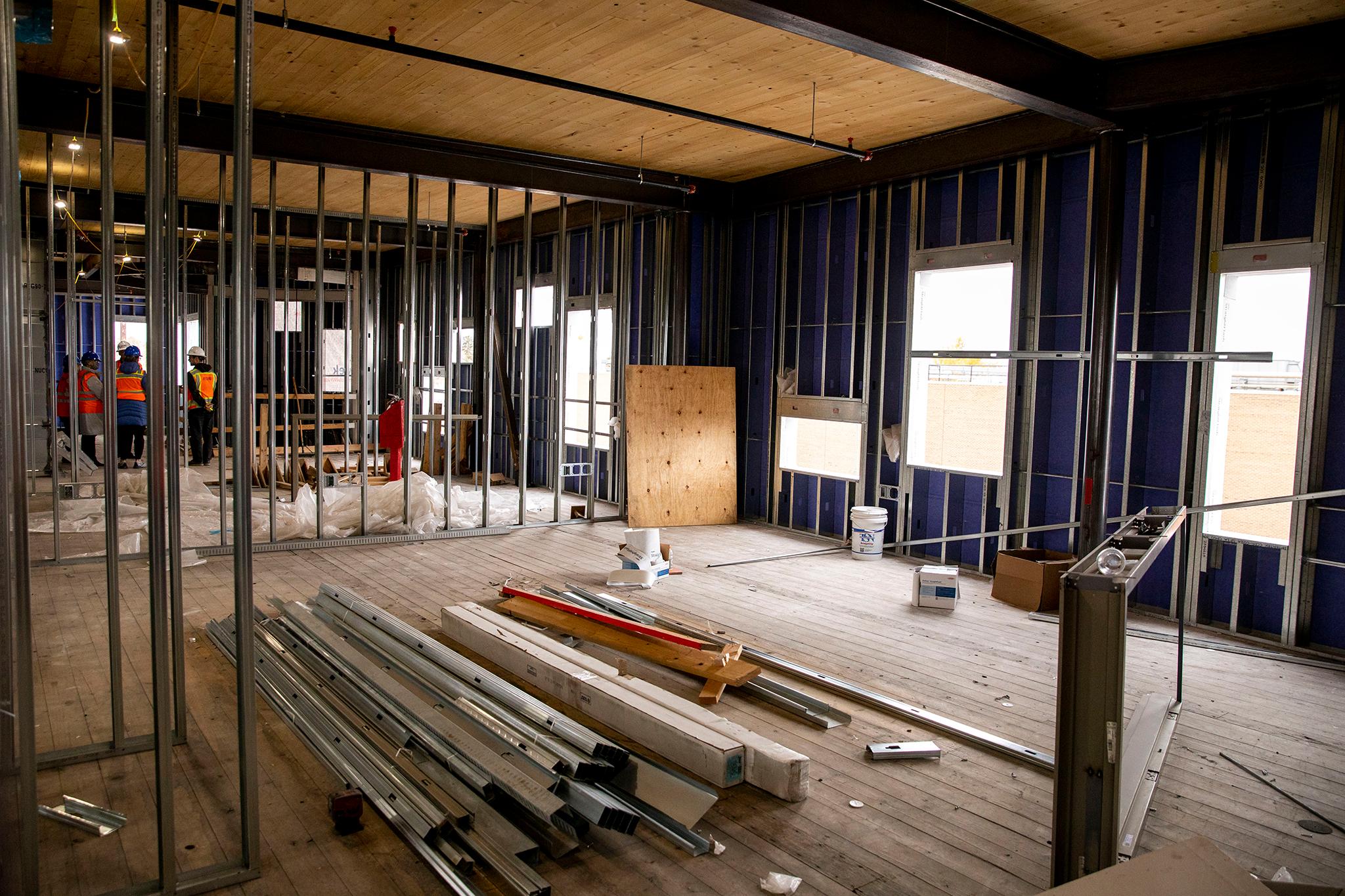
Three stories tall, packed full of books and adorned by the words of their students, Culshaw said their new home will finally match their ambition, reach and ethos.
"The new building means everything," Jefferson said. "It means growth. It means new access to community. It really means everything to the future of Lighthouse."
Correction: The genesis of the interior poetry idea was originally misstated by our sources, and has since been changed to reflect Donneve Rae's contribution.

